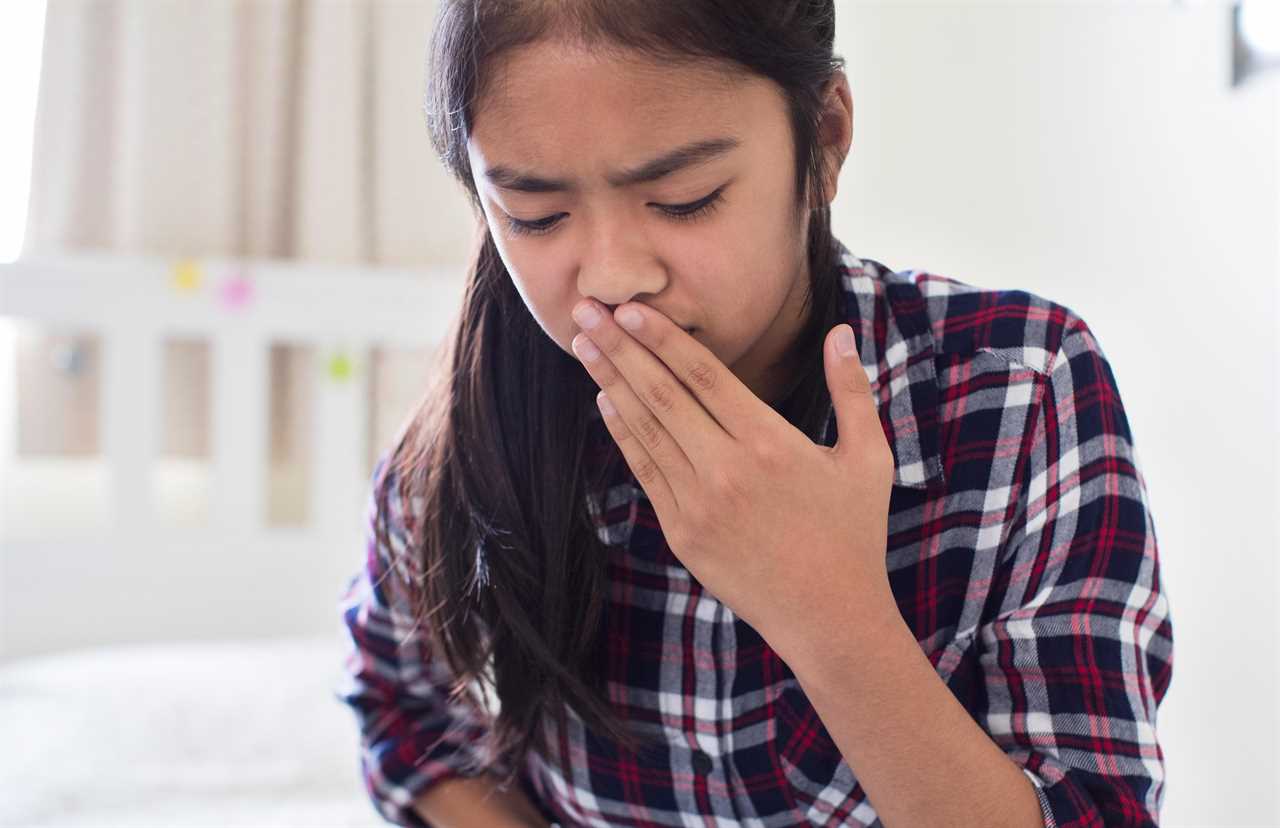KIDS who get long Covid typically have three common symptoms, a study has found.
But less than two per cent of children who test positive for the disease get symptoms lasting more than eight weeks.

The study, led by researchers at King’s College London, found illness lasted no more than a week on average in people aged between five and 17.
Of the 1,734 children studied, who all had a positive PCR test result, 77 kids (4.4 per cent) experienced symptoms for four weeks or more.
Over their entire illness, they mostly suffered fatigue (84 per cent), headache (78 per cent), loss of smell (78 per cent) and a sore throat (74 per cent).
Only 25 children (1.8 per cent) were sick for eight weeks, and they typically had a loss of smell (84 per cent), headache (80 per cent), sore throat (80 per cent) and fatigue (76 per cent).
“Long Covid”, blamed for more than 200 symptoms plaguing sufferers, is typically defined as symptoms lasting more than 12 weeks in adults.
But there is no definition in children yet, said senior author Emma Duncan, professor of clinical endocrinology at King’s College London.
Older kids were more likely to have symptoms lasting over a month (5.1 per cent) than those under the age of 12 (3.1 per cent).
Scientists said it was reassuring that there were no reports of serious neurological symptoms such as fits or seizures, impaired concentration or anxiety at any point during the illness.

Read our coronavirus live blog for the latest updates
Prof Duncan said: “It will be reassuring for families to know that those children who do fall ill with Covid-19 are unlikely to suffer prolonged effects.
“However, our research confirms that a small number do have a long illness duration with Covid-19, though these children too usually recover with time.”
The results, published in the Lancet Child and Adolescent Health journal, involved scientists looking at daily health reports logged by members of the public in the Zoe Covid Study app.
It focused data from September 2020 through to February 2021.
The findings also showed that during Covid infection, kids typically suffer fatigue and headache.
It’s different to the three main symptoms listed by the NHS – a fever, high temperature and loss of smell and/or taste.
Dr Erika Molteni, first author of the study, from King’s College London, said: “We found that nearly a quarter of symptomatic children testing positive for SARS-CoV-2 during the UK’s second wave did not report core symptoms, suggesting the UK testing policy needs reconsideration.”
Importantly the researchers found kids with other illnesses, like colds or flu, also get persistent symptoms.
They assessed children who tested negative for coronavirus but who might have had other ailments, finding those who were ill with Covid-19 had an average of six days of illness compared with three days for children with other illnesses.
But at four weeks, the small number of children with other illnesses tended to have more symptoms than those who were ill with coronavirus.
Dr Michael Absoud, a senior author of the study and consultant and senior lecturer at King’s College London, said: “Our data highlight that other illnesses, such as colds and flu, can also have prolonged symptoms in children.
“It is important to consider this when planning for paediatric health services during the pandemic and beyond.
“This will be particularly important given that the prevalence of these illnesses is likely to increase as physical distancing measures implemented to prevent the spread of Covid-19 are relaxed.”
Long Covid has proven to be a serious after-effect of the virus, already costing the NHS millions to treat.
Previous analysis by KCL showed around one in seven adults experienced symptoms lasting four weeks. One in 20 were ill for eight weeks or longer.
Dr Alasdair Munro, clinical research fellow in paediatric infectious diseases, said today’s findings “reaffirm that children are the least likely to suffer from prolonged symptoms after acute infection”.
“Persistent symptoms after Covid-19 in children fortunately appear uncommon, and families can be reassured that in the event of an infection in children the risk to the individual remains extremely low”, he added.
Russell Viner, professor of child and adolescent health, UCL, said it is “reassuring” to see long Covid may not burden young people.
He has previously suggested that claims that “one in ten children” have long Covid are not reliable.
“We need to remember that some of the symptoms, such as very significant fatigue, are very common in teenagers”, he told a Royal Society for Medicine virtual briefing in July.
“The answer is we just don’t know. But I think we need to be careful and not jump to assumptions.”
The Office for National Statistics estimated there were 33,000 youngsters aged two to 16 years old that were living with long Covid in early June, after suspected infection.
They have the lowest prevalence of long Covid among all age groups, seen in 0.05 per cent of 2 to 11 year olds, and 0.12 per cent of 12 to 16 year olds.
Health minister Lord Bethell said: “It’s encouraging to see the condition (long Covid) is uncommon among children and we will continue to provide support to those suffering the long term effects of the virus.
“Already we have opened over 80 long Covid assessment services across England, including specialist services for children and young people backed by £100 million.”






